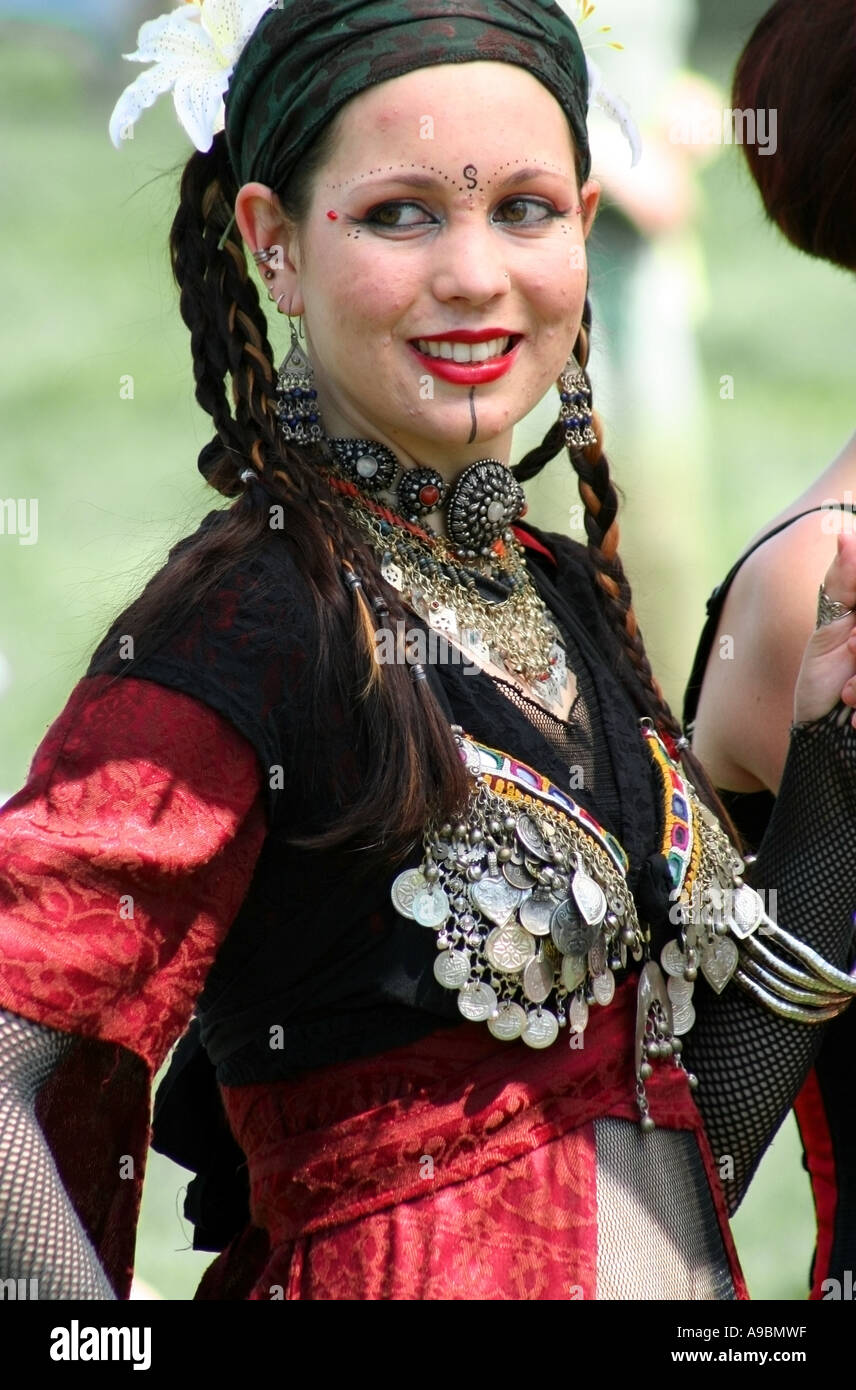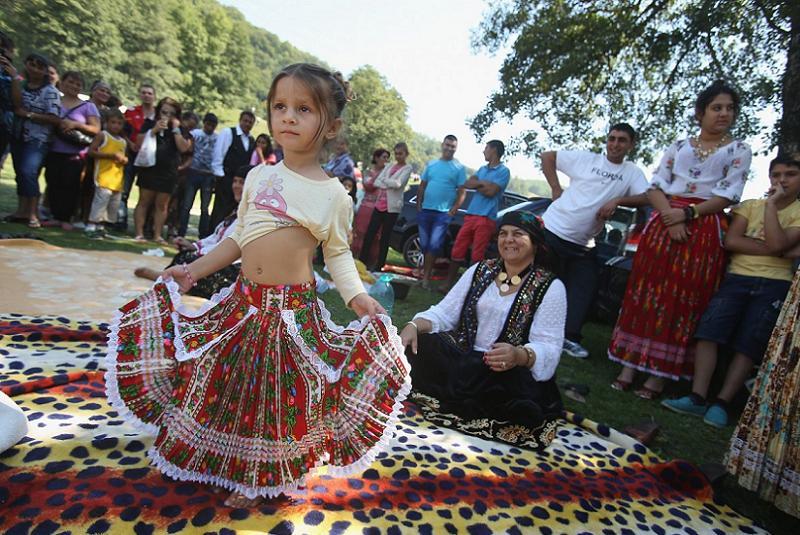The story of Gypsy Rose Blanchard has captivated so many people, drawing a lot of attention to a truly difficult situation. It’s a tale that, you know, has made us all think about family secrets, about trust, and about what really happens behind closed doors. When we talk about Gypsy Rose, the focus often settles on her experiences, her mother, and the shocking events that came to light. But sometimes, people wonder about other family members, perhaps even a "Gypsy Rose sister," and what their presence or absence might mean for the narrative. This curiosity, it's almost, a natural human response to such an unusual set of circumstances.
The public, quite naturally, seeks to piece together the full picture of any family involved in such widely discussed events. This often means looking beyond the main figures to consider everyone who might have been connected, however distantly. The idea of a "Gypsy Rose sister" prompts thoughts about shared childhoods, about different perspectives on the events, or about other individuals who might have experienced similar difficulties. It makes us pause and consider the broader family structure, and how each person within it might have been shaped by the unique situation. We tend to wonder, too, how much of a person's private life becomes public, and what that means for everyone involved.
So, as we consider the impact of Gypsy Rose's story, it feels right to also explore the broader implications, including the conceptual space that a "Gypsy Rose sister" might occupy. We can also look at how certain words, like "gypsy" itself, have evolved in meaning and how they relate to the way we discuss people and their lives. This discussion will, in a way, touch upon the delicate balance between public interest and personal privacy, and how information, once out there, tends to take on a life of its own.
- Tylil Sister Age
- Fore Finger One Thumb Necklace Meaning
- Sister Kick Nuts
- Patri Castilla 93
- Brandon Adams On Merlin Santana Death
Table of Contents
- The Narrative Space of a Gypsy Rose Sister
- Exploring the "Gypsy" Label - A Closer Look
- Public Information and Private Lives - A Delicate Balance
- Reflecting on the Narrative of Gypsy Rose and Her Family
The Narrative Space of a Gypsy Rose Sister
When people talk about Gypsy Rose Blanchard, they often focus on her mother, Dee Dee, and the unique, really, circumstances of their life together. The story is so, so specific to that mother-daughter connection. However, in any family situation, especially one that becomes as widely known as this one, there's a natural tendency to wonder about other family members. Did Gypsy Rose have a sister? What would that have looked like? These questions, you know, aren't about a known person, but more about the possibilities within the story itself. It's about filling in the gaps that our minds tend to create when faced with such an incomplete picture of a family's history.
The concept of a "Gypsy Rose sister" exists more as a thought experiment or a point of public curiosity than as a widely recognized individual. There's no public record or widely shared information that points to a biological sister who lived with Gypsy Rose and Dee Dee in the same way. The narrative, as it has been presented and discussed, centers almost entirely on the two of them. So, when someone asks about a "Gypsy Rose sister," they are usually exploring what such a presence might have meant for the overall dynamics of the household, or how it might have altered the events that unfolded. It's a way of considering the story from a slightly different angle, perhaps imagining a different kind of support system or a different kind of witness to the daily life.
This thought process, actually, helps us understand the depth of the public's engagement with the story. People are trying to grasp the full scope of the situation, and that often means considering all possible family connections. The idea of a sister, or any other close relative, makes us think about the potential for different outcomes or different perspectives on the truth. It's a way of seeking a more complete human picture, even if that picture remains, in some respects, hypothetical. The absence of a sister, in this widely discussed narrative, just highlights the intense isolation that Gypsy Rose experienced for so many years.
- Terrance Howard Mayne
- Kevin Nair Hair Removal Video Unblurred
- Jordan Aaliyah Barnes Death
- Really Hairy Lesbians
- Soy Fan De Tu Relacion
Who is the Gypsy Rose Sister in the Public Eye?
The public's interest in a "Gypsy Rose sister" isn't about a specific person who has stepped forward or been identified. Instead, it speaks to a broader human tendency to look for patterns and connections within a family unit. When a story like Gypsy Rose's comes to light, people often try to imagine the full family tree, even if parts of it are not publicly known or even present. The "Gypsy Rose sister" in the public eye is, basically, a placeholder for the idea of another child, another perspective, or another individual who might have been affected by the same circumstances. It's a way of asking, "What if there was someone else there?" or "How would this story be different if another sibling had been involved?"
This curiosity stems from a desire to understand the full extent of the family's situation. A sister, for instance, could have been a witness to the daily events, offering a different account of the living conditions or the interactions between Gypsy Rose and her mother. Or, perhaps, a sister could have been another person subjected to similar treatment, which would change the perception of the abuse from an isolated incident to a pattern affecting multiple children. So, the "Gypsy Rose sister" isn't a person we can point to, but rather a concept that helps us explore the depths of the family's situation and the potential for wider impacts. It's a way of considering the "what-ifs" that naturally arise from such a unique and disturbing family history.
The absence of a publicly known sister, in a way, also highlights the particular nature of Gypsy Rose's upbringing. Her life was, very, very controlled and isolated. The lack of other siblings meant that the focus of her mother's actions was solely on her, without the distraction or presence of another child. This, you know, makes the story even more stark and singular. So, the "Gypsy Rose sister" in the public mind is more of a narrative device, a way to think through the implications of a family structure that was, apparently, so confined to just two people.
What Roles Might a Gypsy Rose Sister Play in the Story?
When we consider the possible roles a "Gypsy Rose sister" might play in the overall narrative, we are really thinking about the different angles and perspectives that could have emerged from such a family situation. If there had been a sister, for example, she might have served as a confidante for Gypsy Rose, someone with whom to share her thoughts and feelings, perhaps even her suspicions. This kind of relationship could have provided a crucial emotional outlet that Gypsy Rose, quite clearly, lacked for so long. A sister could have been a source of comfort, a shared burden, or even a co-conspirator in seeking a different life. It's interesting to think about how that dynamic might have shifted the course of events.
Alternatively, a sister could have been another person experiencing similar hardships, which would, in some respects, broaden the scope of the abuse. Her presence might have meant a different set of challenges for Dee Dee, or perhaps even a different focus for her actions. The story might have become one of multiple victims rather than a single, isolated case. This would change how the public views the mother's behavior, perhaps seeing it as a pattern rather than an aberration. The "Gypsy Rose sister" could have been a witness, a victim, a helper, or even someone who escaped the situation earlier, providing a stark contrast to Gypsy Rose's own experience.
So, the roles a "Gypsy Rose sister" might play are, basically, hypothetical, but they help us explore the various dimensions of the story. They allow us to consider the potential for different support systems, different forms of control, and different paths to discovery. The idea of a sister helps us to understand the deep human need for connection and shared experience, and how the absence of such connections can shape a person's life in profound ways. It's a way of looking at the story through a slightly wider lens, considering all the potential human elements that could have been present.
Exploring the "Gypsy" Label - A Closer Look
The name "Gypsy Rose" itself brings up an interesting point about language and its origins. The word "gypsy" has a long history, and its use is, honestly, quite a bit more complex than many people realize. It's a term that has been applied to a group of people, the Romani, for centuries, and it carries with it a lot of historical baggage, some of it quite negative. This is something that, as a matter of fact, many people are not fully aware of. Understanding the background of this word can help us appreciate the nuances of language and how certain labels can affect individuals and groups. It's a good reminder that words have power, and their meanings can shift over time.
The term "gypsy" is, in some respects, often associated with a romanticized idea of a wandering way of life, but it also carries a lot of negative stereotypes. It's been linked to notions of illegal behavior, of being outsiders, or of living outside societal norms. This has led to discrimination and persecution for the Romani people throughout history, and even today. So, when we hear the name "Gypsy Rose," it can unintentionally bring up these older associations, even though the name in her case was chosen for personal reasons, not as a direct reference to the Romani people. It's a good example of how language can carry unintended meanings, sometimes quite a bit of weight, beyond the immediate context.
The discussion around the term "gypsy" is a chance to think about how we use language and how it impacts others. It’s about being mindful of the history behind words and recognizing when a term might be considered hurtful or inaccurate by the group it describes. This awareness, you know, helps us to communicate more respectfully and to avoid perpetuating harmful stereotypes. It's a small but important part of understanding the broader social landscape and how words can shape our perceptions of people and their stories.
Where Did the Term "Gypsy" Come From, Anyway?
The origin of the word "gypsy" is, honestly, quite a fascinating bit of linguistic history. It comes from the Middle English word "Gypcian," which was a shortened form of "Egypcien." People in Europe, it seems, mistakenly believed that the Romani people, who had migrated from South Asia, originally came from Egypt. So, they called them "Egyptians," and over time, that word got shortened and changed into "gypsy." It's a bit of a historical misunderstanding that, you know, stuck around for a very long time. This is also why, for example, the Spanish term "gitano" and the French "gitan" have similar roots, also pointing back to "Egypt."
This mistaken origin highlights how names and labels can sometimes arise from incorrect assumptions about a group of people. The Romani people, as a matter of fact, have a rich and diverse heritage, with their true origins tracing back to India. Their traditional way of life often involved moving from place to place, which contributed to the "wandering" stereotype. However, the idea that they were from Egypt was simply a guess that became, apparently, a common belief. This shows how easily a label can be assigned based on incomplete information, and how that label can then persist, even when the original misunderstanding is corrected.
So, when we talk about the term "gypsy," it's worth remembering its roots in this historical error. It's not a term that the Romani people themselves typically use to describe their own identity. Instead, they prefer to be called "Romani" or "Roma." The continued use of "gypsy" by others, despite its inaccurate origins and the negative associations it carries, just goes to show how deeply ingrained certain words can become in our everyday language. It's a good reminder to consider where words come from and what baggage they might carry, especially when discussing a "Gypsy Rose sister" or any other person connected to such a widely known story.
Is "Gypsy" an Offensive Word for the Gypsy Rose Sister Discussion?
The word "gypsy" is, in fact, widely considered to be a term that causes offense, especially by Romani activists and many members of the Romani community themselves. It's seen as derogatory because it carries a lot of negative stereotypes. These stereotypes often connect the word to ideas of illegal behavior, of being untrustworthy, or of living a lifestyle that is outside the norm. Instead of being a neutral identifier for a group of people, it has become, basically, a label that brings with it a history of prejudice and discrimination. So, when we talk about a "Gypsy Rose sister" or anything related to the name "Gypsy Rose," it's important to be aware of this background.
Even though the term "gypsy" is still, pretty, frequently used in English and other languages, its use to refer to Romani people or their language is increasingly seen as inappropriate. This is because of the harmful stereotypes that have been attached to it over many years. The Romani people have faced persecution and discrimination around the world, and they continue to experience prejudice in modern-day Europe and elsewhere. The use of the word "gypsy" can, in some respects, perpetuate these negative ideas, making it harder for Romani people to overcome the historical biases they face. It's a matter of respect and accuracy in language.
So, for any discussion, including one about a "Gypsy Rose sister," it's generally a good idea to be mindful of the impact of



Detail Author:
- Name : Aidan Orn III
- Username : viola.bartell
- Email : draynor@hotmail.com
- Birthdate : 1992-03-28
- Address : 3050 Stehr Plains Apt. 937 Lake Carolanneborough, MS 61902
- Phone : +17409167374
- Company : Bahringer, Conroy and Boyer
- Job : Hoist and Winch Operator
- Bio : Nesciunt saepe ut et qui assumenda magni consequatur quae. Libero nesciunt quo beatae labore aut. Alias ad consequatur explicabo voluptatem nemo. Hic non iusto rerum vero dignissimos maxime.
Socials
linkedin:
- url : https://linkedin.com/in/jenniemohr
- username : jenniemohr
- bio : Quam quidem et minima quod quas.
- followers : 5572
- following : 336
facebook:
- url : https://facebook.com/jennie_mohr
- username : jennie_mohr
- bio : Quidem nulla veritatis et quasi quidem.
- followers : 3708
- following : 1204
tiktok:
- url : https://tiktok.com/@jennie_official
- username : jennie_official
- bio : Eligendi ut tenetur et quo amet eligendi reprehenderit velit.
- followers : 681
- following : 1640
twitter:
- url : https://twitter.com/jenniemohr
- username : jenniemohr
- bio : Quia est praesentium quibusdam. Soluta nemo iste fugiat officiis voluptate voluptas. Officiis enim aut ea qui doloribus eveniet.
- followers : 4883
- following : 468